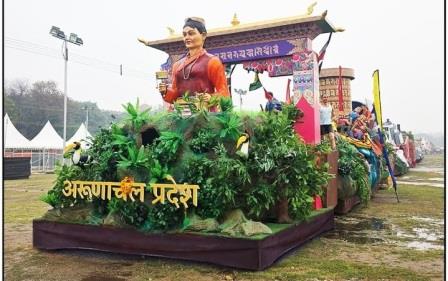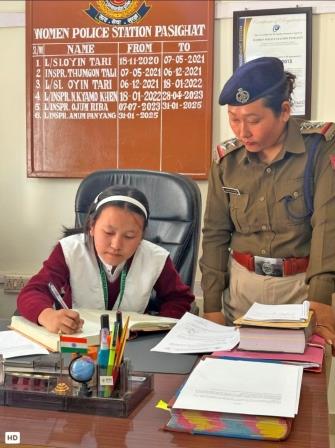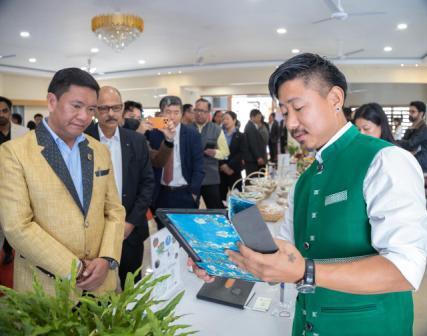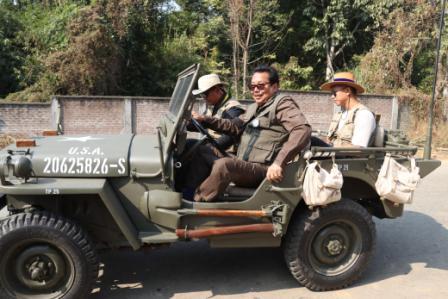-
 Arunachal tableau on R-Day spotlights state’s emergence as Adventure Capital…
Arunachal tableau on R-Day spotlights state’s emergence as Adventure Capital…
-
Etalin marks National Voters’ Day, encourages youth participation in democracy
-
Sona reviews PMGSY, VVP projects in Itanagar Circle
-
Lok Bhavan celebrates UP Diwas
-
 KGBV student leads WPS Pasighat on National Girl Child Day
KGBV student leads WPS Pasighat on National Girl Child Day
-
Meritorious students felicitated on National Girl Child Day
-
Awareness on POCSO held as part of National Girl Child…
-
Anini certifies 79 Nature Guides on National Tourism Day
-
 Startup success stories reflect potential of state’s youth: CM
Startup success stories reflect potential of state’s youth: CM
-
 Mein participates in vintage Willys Jeep Rally, inaugurates World War…
Mein participates in vintage Willys Jeep Rally, inaugurates World War…
Prime Minister Narendra Modi on Wednesday called an all-party meeting where one of the main agendas was to have a discussion on the issue of 'One Nation One Election'. The basic question underlying discussions on this proposal is whether India should hold simultaneous elections to Parliament, all state Assemblies and to the local bodies or there is no need for a change at the moment. This is an idea which has surfaced before and since it has again bubbled up particularly at the onset of the new innings of the current government, it is quite apparent that high pitched debates are just about to commence and stay in the political canvas of the country.
The term ‘simultaneous elections’ is nothing new to the Indian electorate and people of Arunachal Pradesh, Sikkim, Odisha and Andhra Pradesh had its taste just recently when their assembly elections were also held along with LS elections. Actually it was the norm up to 1967, but with the dissolution of some Legislative Assemblies in 1968 and 1969 and that of the Lok Sabha in December 1970, elections to State Assemblies and Parliament have been held separately since then. The idea of returning to simultaneous polls was mooted in the annual report of Election Commission in 1983 and the recent push came ahead of the 2014 Lok Sabha polls in the BJP manifesto. Ever since, there has been widespread discussions on holding simultaneous polls and taking it a step further. Law Commission submitted a draft report to the government in August 2018 endorsing the proposal and recommending changes to the Constitution and electoral law for its enabling. But there hasn’t been any final decision over the issue as yet.
Supporters of simultaneous elections are of the opinion that it would drastically reduce the cost of conducting elections since there would be a common body of personnel serving both elections, help elected governments and ruling parties focus on governance instead of preparing for elections somewhere or the other in the country and avoid ‘policy paralysis’ that arises out of imposition of Model Code of Conduct multiple times during a five-year tenure. Those against it has put forward the arguments drawing attention to an apprehension that it will hurt the nation's federal structure and narrow choices of electorate, forcing them to think of national and state issues at the same plane and will take away the gains made by regional parties over the years and favour the national parties.
But judging the current scenario as of now, it can be said that the issue will draw a good amount of attention with lots of political permutations and combinations and fierce debates in the offing.

Kenter Joya Riba
(Managing Editor)She is a graduate in Science with post graduation in Sociology from University of Pune. She has been in the media industry for nearly a decade. Before turning to print business, she has been associated with radio and television.
Email: kenterjoyaz@easternsentinel.in / editoreasternsentinel@gmail.com
Phone: 0360-2212313

